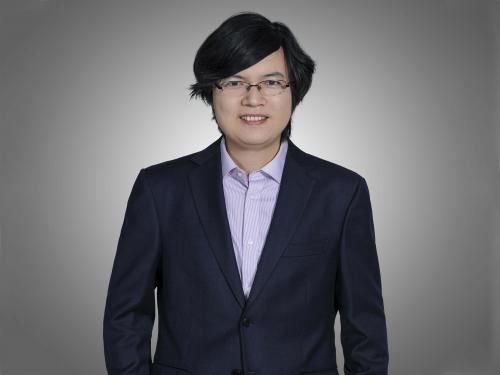Faculty
Self-introduction:
Dr. Hongda Huang, received his bachelor degree (years 2000-2004) in molecular biology and PhD (years 2004-2010) in structural biology at School of Life Sciences of University of Science and Technology of China (USTC). His PhD was trained with both X-ray crystallography and NMR spectroscopy by Prof. Yunyu Shi (Member of Chinese Academy of Sciences) and Prof. Jihui Wu. In Jan 2011, He joined the laboratory of Dr. Dinshaw J. Patel (Member of National Academy of Sciences, USA) at Structural Biology Program of Memorial Sloan-Kettering Cancer Center (MSKCC) in New York as a postdoc to study the structure and function of key epigenetic regulators. He joined Southern University of Science and Technology (SUSTech) as an associate professor in 2017.
Research Interests
Dr. Huang’s research is mainly focused on understanding the molecular mechanism of epigenetic regulation of the genome through structural biology and biochemistry techniques. Epigenetic regulation of the eukaryotic genome involves DNA methylation (DNA methyltransferases, demethylases and reader modules), histone modifications (histone methylation, acetylation, phosphorylation, ubiquitination et al.), chromatin remodeling, histone variants (especially variants of histone H2A and H3) and histone chaperones. Epigenetic regulation could influence gene transcription, DNA replication, DNA repair and cell development. Thus, dysfunction of epigenetic regulators can give rise to human diseases, including cancer. The structural and functional studies of key protein complex in epigenetics can help to elucidate their molecular mechanism and help to open new doors for development of inhibitors and for disease treatment.
Educational background
2004-2010, PhD in Structural Biology, University of Science & Technology of China, Hefei, China.
2000-2004, BS in Biological Sciences, University of Science & Technology of China, Hefei, China.
Professional experience
2017-Now, Associate Professor, Department of Biology, Southern University of Science and Technology, Shenzhen, China.
2011-2017, Research Associate, Structural Biology Program, Memorial Sloan-Kettering Cancer Center, New York, N.Y., USA
Honors & Awards
Representative Publications
(#co-first authors, *corresponding authors)
1. Na Wang #, Christophe Bosc #, Sung Ryul Choi #, Benoit Boulan, Leticia Peris, Natacha Olieric, Hongyu Bao, Fatma Krichen, Liu Chen, Annie Andrieux, Vincent Olieric, Marie-Jo Moutin *, Michel O. Steinmetz * and Hongda Huang* . (2019) Structural basis of tubulin detyrosination by the vasohibin-SVBP enzyme complex. Nature Structural & Molecular Biology 26, 571-582.
2. Shanhui Liao #, Girish Rajendraprasad #, Na Wang # Susana Eibes, Jun Gao, Huijuan Yu, Gao Wu, Xiaoming Tu, Hongda Huang*, Marin Barisic*, Chao Xu*. (2019) Molecular basis of vasohibins-mediated detyrosination and its impact on spindle function and mitosis. Cell Research 29, 533-547.
3. Huang, H. #, Deng, Zh. #, Vladimirova, O., Wiedmer, A., Lu, F., Lieberman, P.* and Patel, D.J*. (2016). Structural Basis Underlying Viral Hijacking of a Histone Chaperone Complex. Nature Communications 7, 12707.
4. Saredi, G. #, Huang, H. #, Hammond, C., Bekker-Jensen, S., Forne, I., Reverón-Gómez, N., Foster, B., Mlejnkova, L., Bartke, T., Cejka, P., Mailand, N., Imhof, A., Patel, D.* and Groth, A.* (2016). H4 K20me0 marks post-replicative chromatin and recruits the TONSL-MMS22L DNA repair complex. Nature 534, 714-718.
5. Huang, H. #, Strømme, C.B. #, Saredi, G., Hödl, M., Strandsby, A., González-Aguilera, C., Chen, Sh., Groth, A.* & Patel, D.J.* (2015). A unique binding mode enables MCM2 to chaperone histones H3-H4 at replication forks. Nature Structural & Molecular Biology 22, 618-626.
6.Elsasser, S.J. #, Huang, H. #, Lewis, P.W., Chin, J.W., Allis, C.D.* & Patel, D.J.* (2012). DAXX envelops a histone H3.3-H4 dimer for H3.3-specific recognition. Nature 491:560-565.



